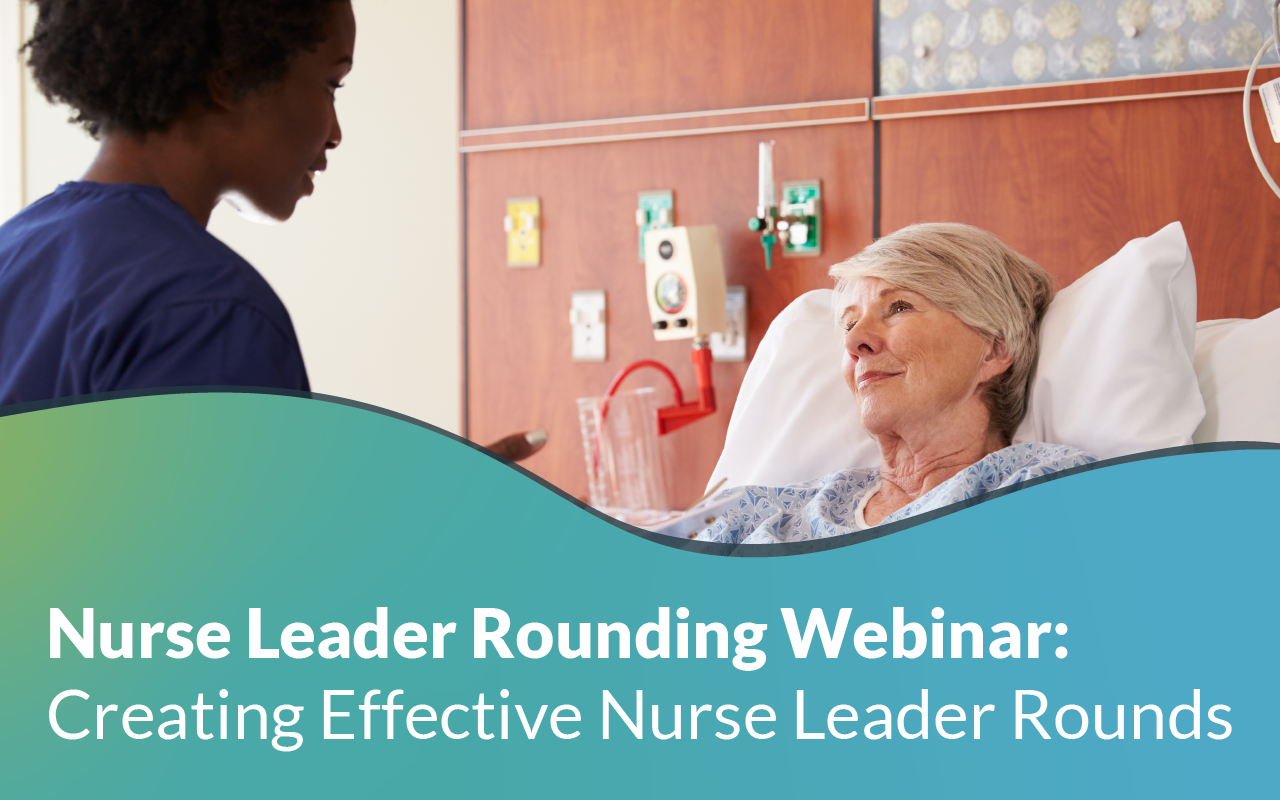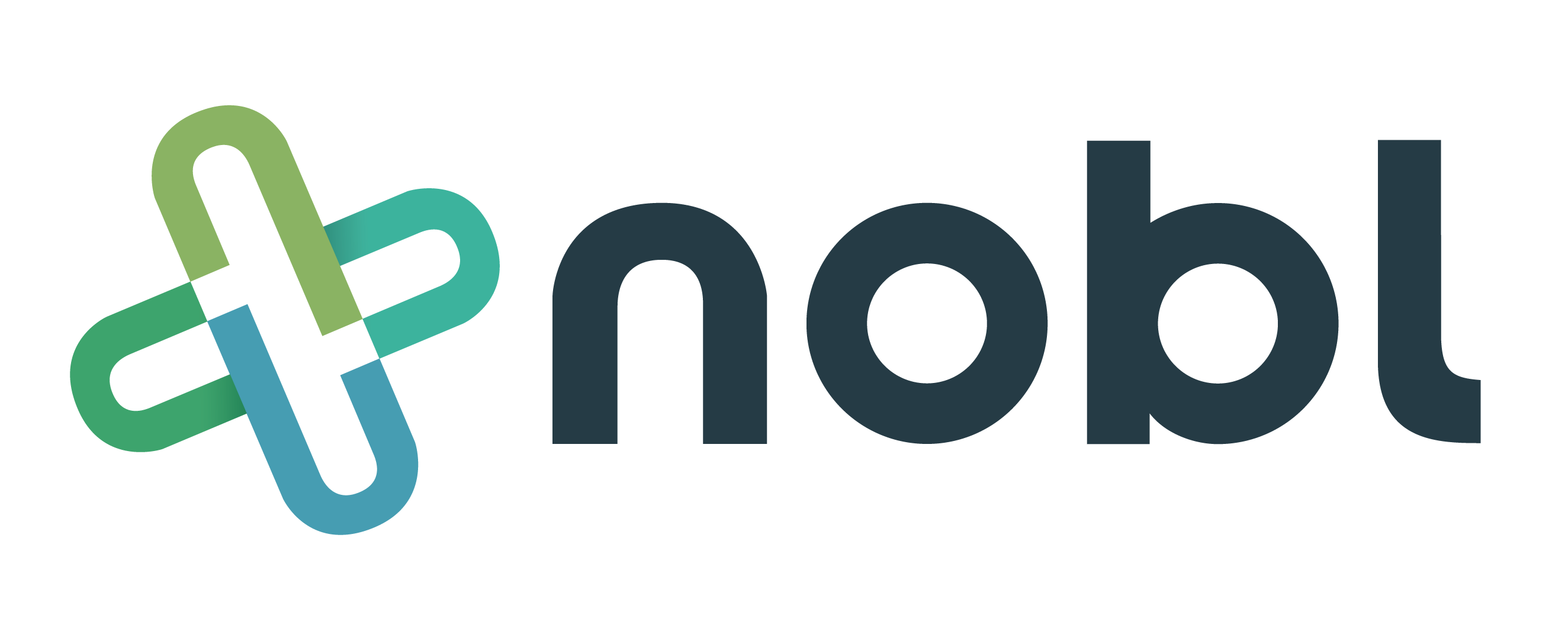
5 min read
Adapting your Rounding Program During COVID-19 to Address Patient and Employees Needs
Nobl Health Apr 7, 2020 6:00:00 AM
The COVID-19 outbreak is impacting all Americans in some manner, including those of us here at Nobl. We are in our 4th week of working virtually. We are fortunate that our business lends itself to a virtual platform, but our healthcare partners at the point of care do not share this luxury. Facing this global threat is taking courage, commitment, and sacrifice from the entire healthcare system.
With “all hands-on deck” to treat the virus, many of our clients are exploring new ways to use rounding to support three distinct groups – the COVID-19 patients in facilities, non-COVID-19 patients in facilities, and the entire healthcare team.
Virtual Rounding on COVID-19 Patients
Virtual rounds are one way to address these new rounding challenges and to conserve PPE. Consider contacting the patient by calling their room phone, cell phone, via Zoom or another established webinar platform. Many are also enlisting patient experience, administrative, and other non-clinical team member to conduct these virtual rounds. Our clients are also leveraging nurses from units that have a low census to conduct these virtual rounds; providing an opportunity for these frontline caregivers to work their full-time hours.
“COVID-19 and isolation patients in general have less interaction with the treatment and ancillary team members. Virtual rounding can demonstrate to the patient empathetic caring. It provides patients with emotional support and encourages them to speak up about their experience,” said Nobl Co-founder and CMO, Katie Haifley.
As with the initiation of any new rounding use case, best practices exist on how to create the process. We recommend that every new rounding scenario begin with a standard work procedure. This document, designed by the team conducting the round, shares the major steps and key points to be covered during the round, as well as the “why” behind each action. By defining these expectations, consistency is created within the rounding process and that contributes to compliance and ultimately improved or sustained safety and patient experience outcomes.
Consider incorporating some of these questions into your leader rounds on COVID-19 patients:
-
Care Today – “Today I am assisting with leader rounding to check in with our patients to ensure that they are getting the emotional and medical care needed. Let me apologize that I cannot be present in the room while speaking with you, but the health crisis prevents me from interacting with you in person. How are you feeling about your care today?”
-
Emotional Status – “My priority is that we are doing everything possible to support your emotional needs. Being in isolation can be lonely, and I want to check on how you are coping. What is most difficult for you right now?”
-
Communication with Family & Friends – “How are we enabling contact with your family and friends? We can share the Friends and Family Portal Code with your loved ones or arrange for video conferencing if that would be helpful.”
-
Service Recovery – (sometimes things do fall through the cracks) “I apologize that we did not meet your expectations this time. I’m committed to making it right, how can I do that?”
Rounding on Non-COVID-19 Patients
Imagine the fear for those who need to be admitted into the hospital for something not related to the global virus threat. The routines we use in healthcare to practice universal precautions during normal times are not known to patients, let alone the additional safeguards being taken now. With everything in the news, what impact could multiple caregivers entering and leaving the room create for these patients? To keep the chances of community spread in check, no visitors are being allowed into facilities. Imagine facing critical cardiac or oncology surgery without having your family members at your side. What we do to educate all patients about our processes and the reasons for those actions becomes critically important. Bundling care and streamlining patient contacts is important. But the risks of isolation and negative patient experiences runs high. Staff are tired and stressed and patients are scared.
“Our clients are repurposing nurse leader rounding to address these challenges and support the by the emotional needs of these patients. They are also using these interactions to educate patients about PPE, why staff are wearing masks and how the hospital is taking extra precautions,” said Nobl Co-founder and CMO, Katie Haifley.
Consider asking some of these questions during your nurse leader rounds on patients during this time:
-
Please know that we are taking all the necessary measures and precautions to protect the safety of our patients and caregivers. One of the ways is limiting visitors that are allowed in the hospital which makes it difficult to communicate changes with your family and friends. Can you tell me how you are communicating with your family and friends so they can keep updated on your care?
-
My priority is to ensure that we are doing everything possible to support your emotional needs. What is most difficult for you right now? (listen)
-
I’m wondering if speaking to our chaplain or your local pastor may be helpful for additional support. Is there anyone we can arrange for you to speak to help you feel supported right now?
-
I can help set-up a video call using one of our tablets. Would you be interested in this so you can visit with your family?”
Rounding on Employees During the COVID-19 Crisis
Many Nobl clients ask questions during employee rounding to harvest feedback and seek ideas on how to improve processes and have done so for quite some time. Since COVID-19, our partners have altered their employee rounding process to address safety concerns, harvest safety enhancement ideas, and answer questions specific to the virus. In addition to these COVID-19 specific questions, other open-ended questions are being used to determine the emotional needs of employees. Frontline staff are called to serve and don’t want to disappoint their co-workers or put a burden on others. But at the same time, they are living with fears for their own safety, or worse, the risk that they might pass the virus to others if they are infected but asymptomatic.
Consider incorporating some of these questions into your employee rounding process during this time:
-
We are doing everything we can to provide safety equipment to all our staff members at risk of contracting or spreading this environment. But sometimes supplies don’t get distributed where we think they are going. Do you feel you have everything you need for your personal safety?
-
These are very unusual times and all innovative ideas are important to consider. What ideas do you have for new ways that we can protect staff and patients?
-
Thank you for being here as a part of our staff. We appreciate the sacrifices you are making here at work and at home to help get us through this difficult time. There are several different resources available to support you emotionally or spiritually. Do you have worries, other needs or concerns where you need help?
Auditing cleaning processes and protocols
Now more than ever we need standardization and adherence to sanitization and disinfection practices. Today many of our clients already use Nobl to audit environments of care. Since COVID-19, we have partnered with clients to create new specific audits of their cleaning processes and protocols for use by EVS and infection prevention leaders.
The Nobl Rounding Platform is a highly configurable solution that can be easily be adapted to round on patients, employees and audit environments of care in response to the changing dynamics of the COVID-19 pandemic. The strong partnership with our clients and quick response of our client service and support team has allowed us to update the software rapidly to support their evolving needs during this time. We thank our clients for this strong partnership and look forward to visiting you all in-person in the future!
If you would like help implementing any of these tactics, or have any of your best practices that you’d like to share, please contact us or email connect@noblhealth.com.
Written by Teresa (Terry) Anderson, EdD, MSN, RN, NE-BC | Chief Nursing Officer
Terry and her daughter Adrienne Ottemann sewed masks on April 2 for area assisted living facilities.
New Free eBook
Best Practices for Sharing and Reviewing Data from the Nobl Rounding Platform
Beryl Institute Case study
Improved First Impressions at Your Front Door - Patient Ambassador Rounders Enhance the Patient Experience of a Busy Emergency Department
Recent Posts

Five Key Factors to Consider in Pediatric Leadership Rounding



